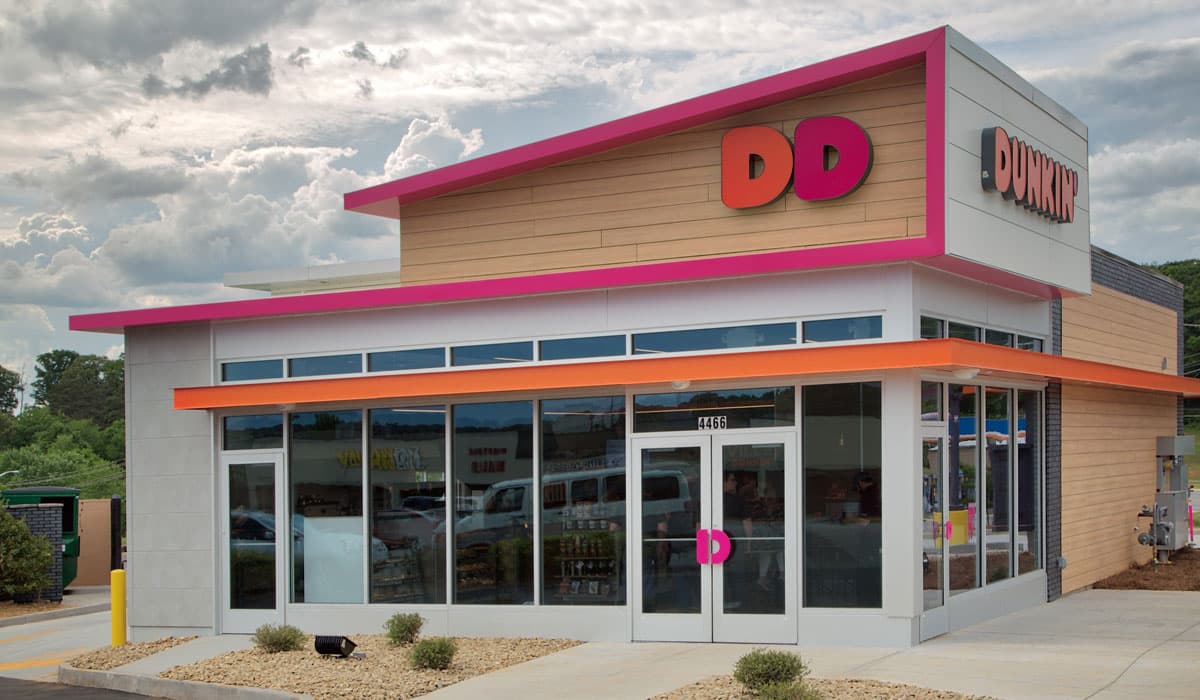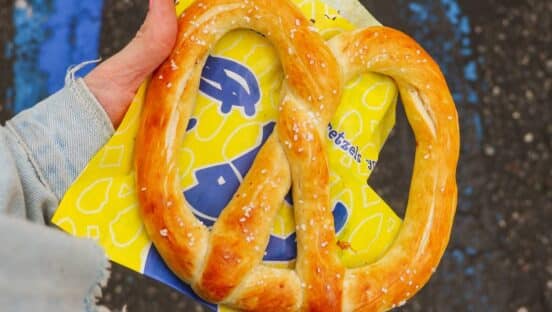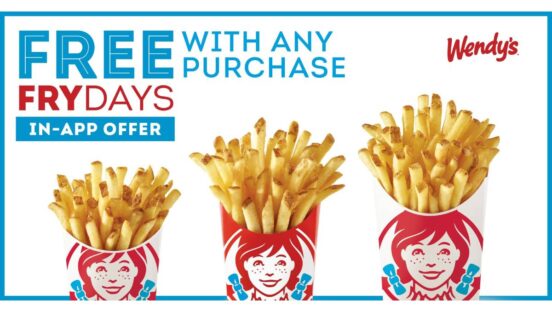Inspire Brands completed its industry-shaking $11.3 billion acquisition of Dunkin’ Brands Group, Inc. Tuesday, officially becoming the second-largest restaurant company in the U.S., both by system sales and locations—despite forming just two years ago.
Roark Capital-backed Inspire, which arrived February 2018 following Arby’s Restaurant Group’s $2.9 billion purchase of Buffalo Wild Wings, now directs nearly 32,000 restaurants across more than 60 countries generating $26 billion in annual system sales. Dunkin’ and Baskin-Robbins, which go private with the move, join Buffalo Wild Wings, Jimmy John’s, Sonic Drive-In, and fast casual Rusty Taco.
“We are very excited to welcome the Dunkin’ and Baskin-Robbins brands into the Inspire family. Dunkin’ and Baskin-Robbins are category leaders and two of the most iconic restaurant brands in the world,” said Paul Brown, co-founder and CEO of Inspire, in a statement. “This is an incredible moment in our journey as a company. I want to thank all our team members, franchisees and suppliers whose hard work helped make this possible.”
Inspire’s Dunkin’ acquisition, announced October 30, is the highest-dollar restaurant deal since 3G Capital LP, Burger King Worldwide Inc., acquired Tim Hortons for $12.64 billion in August 2014. Panera Bread follows at $7.5 billion, a price paid by JAB Holdings in 2017.
Inspire paid $106.50 per share in cash, a 20 percent premium to Dunkin’ Brands’ closing price on October 23.
Like all of its chains, Inspire said it will operate Dunkin’ and Baskin-Robbins as distinct brands within its portfolio. The company’s guiding strategy is to build a family of highly differentiated and complementary brands, almost akin to how hotel companies spread from a base of power. Brown came to Arby’s from Hilton Worldwide and told QSR early in Inspire’s journey it planned to mirror the hotel sector’s framework of driving concept value from within a multi-branded collection of brands—independent concepts that pull from a center of excellence.
Inspire said Tuesday Dunkin’ and Baskin-Robbins would benefit “by leveraging the capabilities and best practices of Inspire’s shared services platform. Additionally, both brands will also benefit Inspire by adding a highly talented team, strong franchise network, large and loyal customer base, scaled international platform, as well as a robust consumer packaged goods licensing capability.”
INSPIRE BRANDS TIMELINE:
A Look Inside Inspire’s New Brand Empire
February 2018: Buffalo Wild Wings Signals the Start of Something Bigger
December 2018: Sonic Officially Joins Inspire Brand’s Burgeoning Empire
October 2019: Inspire Makes a Big Bet on Jimmy John’s
October 2020: Inspire Brands to Acquire Dunkin’ in $11.3 Billion Blockbuster
Former Dunkin’ Brands CEO Dave Hoffmann will serve as “Senior Advisor” and report to Brown. He’ll help navigate the integration process, Inspire said. Scott Murphy, formerly Dunkin’ Americas president, will assume the role of Head of the Inspire Beverage-Snack Category, as well as president of Dunkin’. He’ll report to Brown, too.
SVP of Baskin-Robbins U.S. and Canada, Jason Maceda, is shifting to president of Baskin-Robbins, where he’ll report to Murphy. Both will join the Inspire executive team.
In accordance with the merger agreement, Raul Alvarez, Linda Boff, Irene Chang Britt, Anthony DiNovi, Michael Hines, Hoffmann, Mark Nunnelly, Roland Smith, Carl Sparks, and Nigel Travis resigned from the board of directors.
Brown, Nils H. Okeson, and J. David Pipes, are now directors. Okeson and Pipes were appointed new officers as well.
“We are excited to reach this important milestone together with our incredible franchisees, licensees, employees, and suppliers,” said Hoffmann, who became Dunkin’ Brands CEO in July 2018, succeeding Travis. “Over the past few years, we have accomplished much to be proud of including the execution of our strategic plans that led to the transformation of our two beloved, iconic brands. We are confident that Inspire’s proven stewardship of franchised restaurant concepts and best-in-class capabilities will drive further growth for both Dunkin’ and Baskin-Robbins around the world.”
Inspire closes the deal with plenty of scale. Arby’s is the largest sandwich drive-thru chain in the U.S. (3,359 domestic units year-end 2019); Baskin-Robbins the largest ice cream specialty shop chain in the world (2,524); Buffalo Wild Wings the biggest sports bar concept (1,215); Dunkin’ the leading coffee and donuts chain in America (9,630); Jimmy John’s the most sizable owned delivery sandwich brand in the U.S. (2,787); and Sonic the largest national drive-in chain (3,526).
Even so, the Dunkin’ scoop was clearly the unit count game-changer for Inspire. Before the deal, the company ran roughly 11,000 restaurants. Today, there are more than 12,500 Dunkin and nearly 8,000 Baskin-Robbins globally alone.
It also places four of top 23 U.S. grossing counter-service brands under one umbrella (Baskin-Robbins was 48th). By total systemwide domestic sales in millions as of year-end 2019: Dunkin ($9,220); Sonic ($4,687); Arby’s ($3,885), Jimmy John’s ($2,105); and Baskin-Robbins ($626). Buffalo Wild Wings ranked No. 3 among sit-down chains at $3.7 billion.
Dunkin’ is also 100 percent franchised and boasts more than 20,000 points of distribution in more than 60 countries worldwide.
Dunkin’s U.S. same-store sales climbed 0.9 percent after improving sequentially each month. July was down low-single digits before inching into positive territory in August and accelerating through September. In the week ended October 24, comps were gaining low-single digits, year-over-year. Baskin-Robbins’ U.S. same-store sales grew 6.5 percent in the period.
As BTIG analyst Peter Saleh pointed out at the time of the deal’s announcement, Inspire valued Dunkin’ Brands “at more than 25x trailing EBITDA and representing the highest acquisition multiple of a franchise operator in recent history.”
The tag was well above historical industry averages of 11x and even the mid-to-upper teens multiples that best-in-class operators have been able to achieve, he said.
Sonic’s $2.3 billion deal was for 15.8x trailing EBITDA. Popeyes’ $1.8 billion 2017 sale to Restaurant Brands International clocked in at 19.6x. JAB’s $7.5 billion acquisition of Panera Bread was 17.8x.
The acquisition of Dunkin’ Brands represented a 10x premium to that of Sonic and the highest multiple paid for a franchised business of scale in the past 10–15 years, if not longer, Saleh said.
All this likely signals growth in the future as Dunkin’s price reflects potential as much as current penetration. The concept has plenty of runway west of the Mississippi, especially in California, and previously suggested it could reach 17,000 U.S. units in time.









